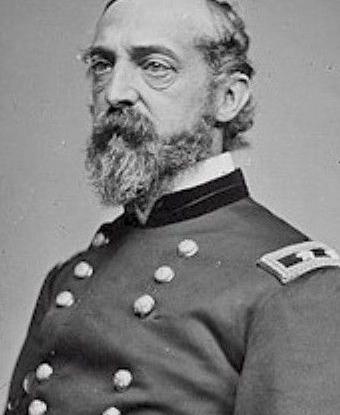Last updated: January 12, 2022
Person
George G. Meade

Library of Congress
George Gordon Meade was an 1835 West Point graduate and U.S. Army officer and who resigned his commission after only a year to pursue what he hoped would be a more lucrative private career. This failed to materialize and he re-enlisted in the U.S. Corps of Topographical Engineers in 1842. Meade served as a staff officer for various field generals during the Mexican-American War and oversaw a variety of coastal survey and construction projects before and afterwards.
He began the Civil War as a brigadier general of volunteers for the Union army in the Eastern Theater. In 1862, he was severely wounded at the Battle of Glendale. Meade commanded a brigade of infantry at the Battle of Second Manassas in August 1862. He commanded an infantry division during the first Confederate invasion of Maryland in September, culminating at the Battle of Antietam. He was a corps commander at the beginning of the second Confederate invasion in June 1863 when he was abruptly promoted commander of the Army of the Potomac, replacing Joseph Hooker.
Three days later, Meade's clashed with Gen. Robert E. Lee's Army of Northern Virginia in the epic Battle of Gettysburg, Pennsylvania. Although clearly a major Union victory, this triumph was not decisive and when his army was slow to pursue the retreating Confederates, Meade received much of the blame. In April 1864, with Meade's reputation still under a cloud, Ulysses S. Grant was appointed commander of all the Union armies and chose to establish his headquarters with Meade's Army of the Potomac.
From this point forward, Grant and Meade would remain in close contact throughout the 1864 Overland Campaign's drive to Richmond, the Siege of Petersburg and the final surrender of Lee's army at Appomattox. Grant respected Meade's capabilities, but Meade chaffed under this close supervision and came to resent the credit Grant received for these last military successes. In 1866 Meade became a commissioner of Fairmount Park in Philadelphia where he died in 1872.
